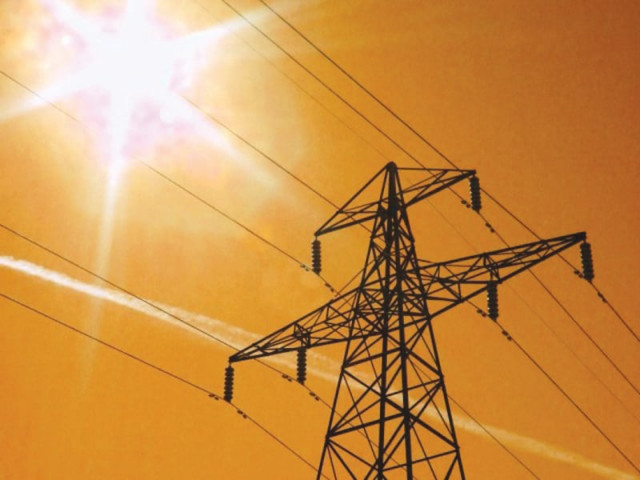Piling up again: Vicious cycle of circular debt
As of today, the total circular debt has piled up to a staggering Rs298 billion.

The government, in fact, showed its good intention by immediately increasing the power tariff first for industrial and commercial consumers and then for domestic users, the official said. PHOTO: FILE
Outstanding dues of 15 independent power producers (IPPs) operating under the 2002 power policy have reached the levels where they can invoke the sovereign guarantee of the state. As of today, the total circular debt has piled up to a staggering Rs298 billion, out of which the share of the IPPs operating under the 2002 power policy has crossed the Rs59 billion mark.
While the IPPs’ capacity utilisation has increased since December 2013, it is now feared that the mounting circular debt may cause them to scale down power generation. Moreover, if a bailout is needed, the power crisis may worsen, said an official of an IPP.
The incumbent government increased the capacity utilisation of IPPs to 66% between December 2013 and April this year – as opposed to the 55% during the PPP government.
However, this increase will be nullified by the increasing circular debt, explained the official. He added that the government has to pay Rs141 billion to the IPPs under the 1994 policy, and Rs59 billion under the 2002 power policy. The total dues of generation companies (gencos), Chashma Nuclear Power Complex, and hydel generation companies are Rs98 billion.
“The IPPs responded positively to the present government’s efforts of curbing the power crisis and increased their supplies, but they are still facing a financial crunch due to the non-payment of their dues,” he said.
The IPPs were confident that the incumbent government’s economic team would ensure their dues do not pile up again. The government, in fact, showed its good intention by immediately increasing the power tariff first for industrial and commercial consumers and then for domestic users, the official said.
The IPPs operating under the 1994 power policy are supplied fuel by the state through either Pakistan State Oil or natural gas distribution companies; the same is the case with government-sector power companies.
However, the IPPs under the 2002 policy have to buy their own fuel to run their power plants, but with these outstanding dues, they are finding it hard to continue producing power, explained the official.
He added that fuel is a major component of electricity-generation costs and IPPs of the 1994 policy and state-run power companies do not pay state-owned fuel suppliers any money if they do not get payment from the government. But the 2002 power policy-based IPPs cannot do that – they have to procure oil on cash or stop production.
Still, the IPPs in general produced 57% of the total power produced in April 2014, generating on average 6,168 MWs, which is their highest generation in last few years.
IPPs and their circular debt
Liberty Power Tech: Rs8.3 billion
Nishat Power Ltd: Rs7.6 billion
Foundation Power Company (Daharki) Ltd: Rs3.4 billion
Nishat Chunian Group: Rs7.3 billion
Attock Generation Ltd: Rs7.5 billion
Atlas Power: Rs7.5 billion
Engro Powergen Ltd: Rs1.6 billion
Orient Energy Systems Pakistan: Rs1.7 billion
Sarhad Hydel Development Organisation (Shydo): Rs 93 million
Hubco Narowal Power Plant: Rs6.8 billion
Halmore Power Generation Company Ltd: Rs875 million
Saif Energy Limited: Rs3.6 million
Sapphire Power: Rs2.7 billion
Fauji Fertiliser Company: Rs164 million
Zorlu Energy Group Rs44 million
Published in The Express Tribune, May 8th, 2014.



1724319076-0/Untitled-design-(5)1724319076-0-208x130.webp)















COMMENTS
Comments are moderated and generally will be posted if they are on-topic and not abusive.
For more information, please see our Comments FAQ